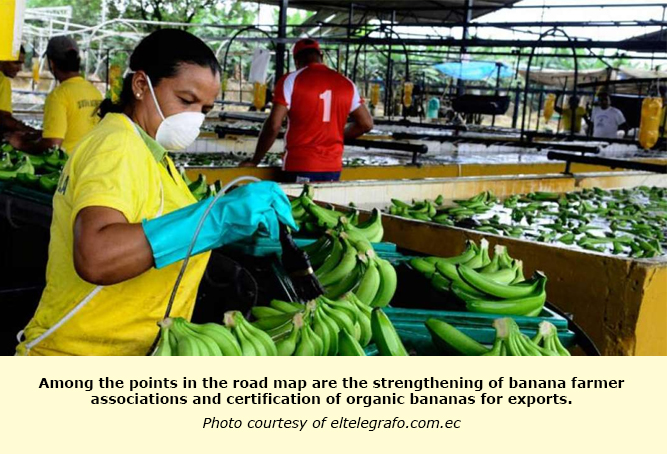The first Banana Technical Table, led by the Minister of Agriculture and Livestock, Ruben Flores, established a twelve-point road map to benefit the sector.
Representatives of the producers and exporters of the fruit participated in the meeting.

They agreed to work on the following points: port fees in Puerto Bolivar, reforms to the Banana Law and Instructions for Ministerial Agreement 316, labor issues regarding the Agribusiness Contract of Crews, and a mechanism to regularize the situation of producers in the IESS and other public entities. They will also work on environmental regulations, international campaign promotion of a country brand, and the change of the energy matrix for irrigation and drainage.
Among the points agreed upon were the strengthening of the banana associations, controls on organic banana exports, technical institutes for training workers in the sector, payments and taxes collected by the Internal Revenue Service, and an international campaign in defense of the Ecuadorian product.
On the Yilport issue, the Technical Table established agreements for the treatment of the port tariffs issue.
Flores said that the Ministry of Agriculture, the Ministry of Transport and Public Works (MTOP), and the Ministry of Foreign Trade, were analyzing the impact of the issue on the banana sector.
The Technical Table agreed on three points. First, the government will carry out an integral analysis of the concession contract with the Yilport company, to evaluate and propose the corresponding changes.
Second, that they will seek a mechanism so that the port tariff established in February 2017 continues being enforced, and third, that, within the framework of the times established for this road map, authorities will maintain a permanent dialogue with the sector so they can monitor the progress of the proposals.
Source: El Telegrafo
Translation by Freshplaza
